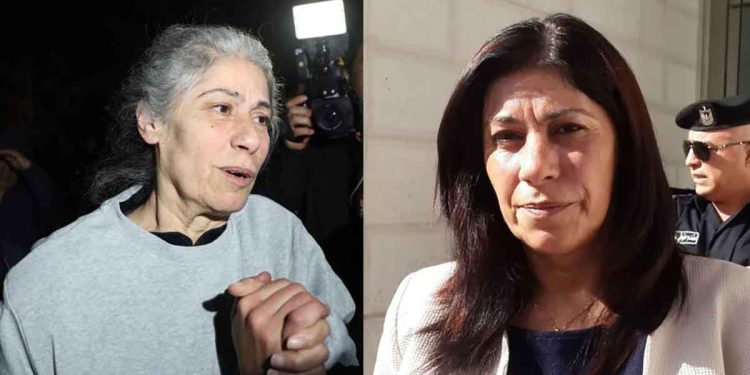The plight of Palestinian prisoners in Israeli detention remains one of the most pressing humanitarian issues, shedding light on the grave violations of human rights and international humanitarian law.
The contrasting images of Palestinian leader Khalida Jarrar, before her arrest and after her release, convey a profound message. In one, she appears vibrant, embodying her active political and social life. In the other, she reflects the toll of years under harsh imprisonment: grey hair, a pale complexion, and noticeable frailty, indicative of prolonged medical neglect and deliberate humiliation.
This stark contrast is not merely physical—it is a visual testament to the Israeli occupation’s systematic abuse of prisoners, aiming to erode their humanity and morale, though it consistently fails to break their spirit.
Jarrar was released as part of the first phase of a ceasefire agreement that included a prisoner exchange between the occupation and Gaza. The deal saw 90 Palestinian women and children released in exchange for three Israeli detainees.
Having endured six months in solitary confinement before her release, Jarrar described the current conditions for Palestinian prisoners as “the harshest since 1967.”
In media statements, she highlighted the systematic nature of physical and psychological abuse against prisoners. The policies of humiliation include the use of tear gas, deliberate reductions in food quality and quantity, and prolonged solitary confinement.
Jarrar attributed these escalating practices to the Israeli government’s intensifying crackdown, noting that former National Security Minister Itamar Ben Gvir “treats prisoners as if they are not human.”
Administrative detention remains one of the most egregious forms of abuse against Palestinians, a practice Jarrar herself endured—being detained without clear charges or a fair trial.
Other violations include denying prisoners family visits, confiscating personal belongings, and subjecting them to repeated physical assaults and psychological torture.
These practices flagrantly violate the Geneva Conventions of 1949, which guarantee prisoners humane treatment, protection from torture, and the right to medical care.
Khalida Jarrar’s story is a microcosm of the daily reality faced by tens of thousands of Palestinian prisoners. The images of her suffering should serve as a catalyst for urgent international human rights action to end these violations and hold the perpetrators accountable.
The dignity of Palestinian prisoners is inseparable from the dignity of the Palestinian people. The persistence of these abuses demands intensified national and international efforts to expose the occupation’s policies and uphold justice. Palestinian prisoners are not mere statistics—they are stories of suffering and resilience that must remain etched in the global conscience until freedom is achieved.


























